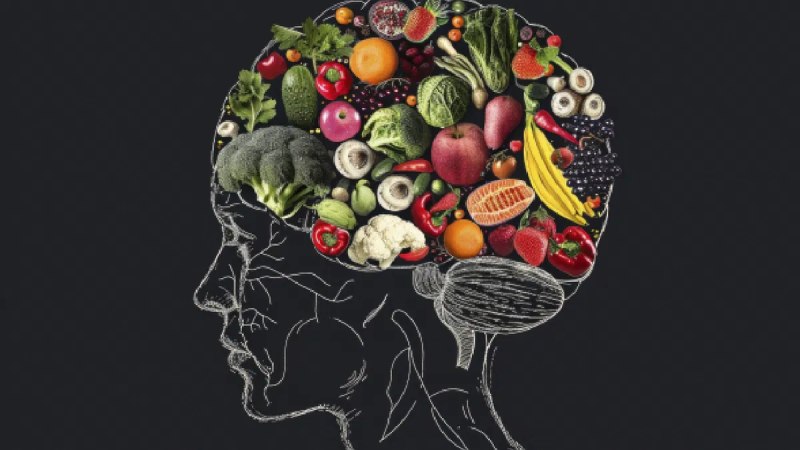The strong connection between food and brain health has been emphasized by recent study.
The study, which was published in Nature, demonstrated the connection between improved mental health, cognitive function, and brain health and a balanced, healthful diet. Researchers from the University of Warwick conducted the study, which provides insight into how our dietary choices have a major impact on both physical and mental health.
New insights into the relationship between nutrition and overall wellbeing were revealed by analyzing the dietary choices of a large sample of 181,990 participants from the UK Biobank against a range of physical evaluations, including cognitive function, blood metabolic biomarkers, brain imaging, and genetics.
Each participant’s dietary choices were gathered using an online survey that the team divided into ten categories (such as alcohol, fruits, and meats). The researchers used machine learning, a subset of AI, to analyze the enormous dataset.
Compared to individuals with a less diverse diet, those with a balanced diet were connected to improved mental health, superior cognitive skills, and even higher levels of grey matter in the brain, which is linked to intelligence.
The study also emphasized the necessity of making small, incremental dietary changes, especially for people who are used to eating very tasty but low-nutrient meals. People who gradually cut back on their diet of fat and sugar may discover that they naturally lean toward better food options.
The relationship between nutrition and brain health may also be influenced by hereditary variables, the scientists hypothesize, illustrating how lifestyle decisions and genetic predispositions interact to influence wellness.
The University of Warwick’s Professor Jianfeng Feng, the lead author, emphasized the need of forming healthy eating habits early in life. He declared: “Developing a healthy balanced diet from an early age is crucial for healthy growth. To foster the development of a healthy balanced diet, both families and schools should offer a diverse range of nutritious meals and cultivate an environment that supports their physical and mental health.”
Speaking to the research’s wider ramifications, Prof. Feng stressed how important it is for public policy to support easily accessible and reasonably priced healthy food options. “Since dietary choices can be influenced by socioeconomic status, it’s crucial to ensure that this does not hinder individuals from adopting a healthy balanced dietary profile,” he said. “Implementing affordable nutritious food policies is essential for governments to empower the general public to make informed and healthier dietary choices, thereby promoting overall public health.”
“Our findings underscore the associations between dietary patterns and brain health, urging for concerted efforts in promoting nutritional awareness and fostering healthier eating habits across diverse populations,” said Wei Cheng, co-auditor at Fudan University.
Hexagon Health’s Certified Lifestyle Physician and General Practitioner, Dr. Richard Pemberton, who was not engaged in the study, said: “This exciting research further demonstrates that a poor diet detrimentally impacts not only our physical health but also our mental and brain health. This study supports the need for urgent government action to optimise health in our children, protecting future generations. We also hope this provides further evidence to motivate us all to make better lifestyle choices, to improve our health and reduce the risk of developing chronic disease.”

 Diabetology2 weeks ago
Diabetology2 weeks ago
 Diabetology1 week ago
Diabetology1 week ago
 Diabetology3 days ago
Diabetology3 days ago
 Diabetology3 days ago
Diabetology3 days ago
 Diabetology3 days ago
Diabetology3 days ago
 Diabetology1 day ago
Diabetology1 day ago















